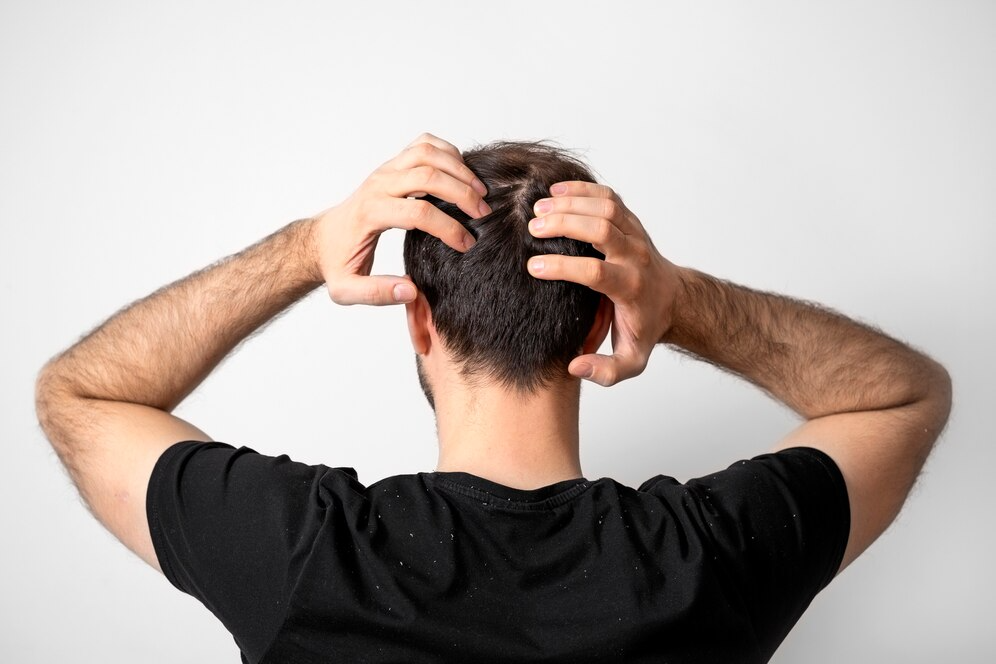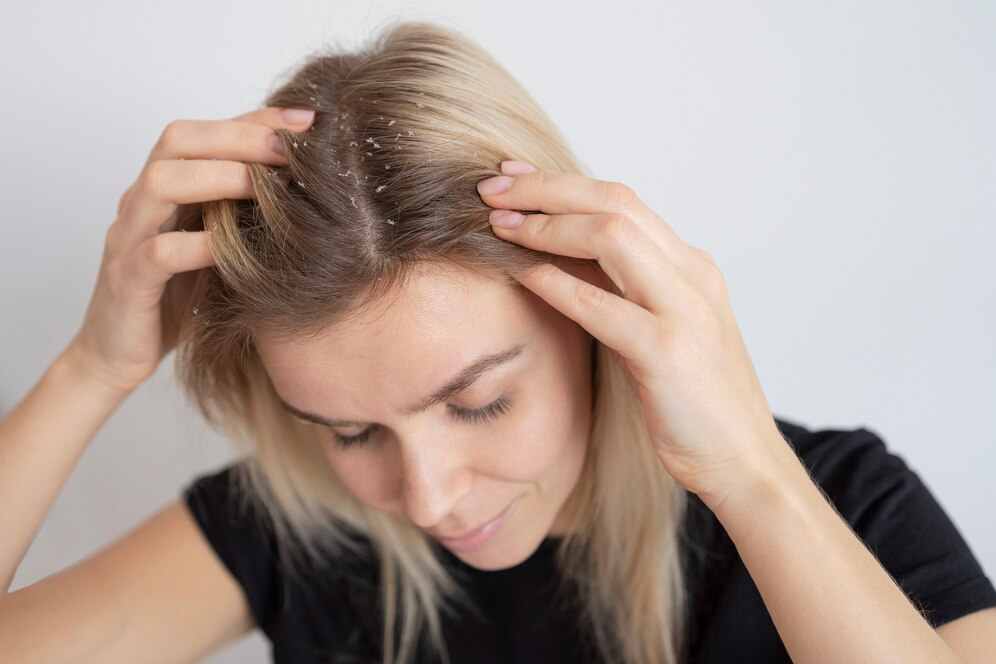Decoding Dandruff: Unveiling Causes, Effective Treatments, And Proven Prevention Strategies
Table of Contents
Dandruff is a common scalp condition that affects millions of people worldwide. While it is not a serious medical condition, it can be a source of embarrassment and discomfort for those who suffer from it. This article aims to explore the causes, treatments, and preventive measures for dandruff, shedding light on a condition that often carries misconceptions.
What is Dandruff?
Dandruff is a condition characterized by the flaking of dead skin cells from the scalp. These flakes, often visible on the hair and shoulders, can vary in size and are accompanied by itching. Dandruff, or pityriasis capitis, affects individuals from adolescence to adulthood without age limitations.
Its Causes
- Malassezia Fungus: The most common cause of dandruff is the presence of a yeast-like fungus called Malassezia on the scalp. This fungus feeds on the natural oils produced by the hair follicles, leading to an inflammatory response that results in flaking.
- Dry Scalp: Contrary to popular belief, dandruff is not always caused by overly oily skin. Dry scalp can also contribute to the development of flakes, as the skin cells dry out and shed more easily.
- Seborrheic Dermatitis: This is a chronic condition that causes red, itchy skin covered with flaky, white scales. It often affects areas rich in oil glands, including the scalp.
- Not Cleaning Hair Regularly: Infrequent hair washing can lead to an accumulation of oils and skin cells on the scalp, creating an environment conducive to dandruff.
- Sensitivity to Hair Products: Some individuals may be sensitive to certain hair care products, leading to an irritated scalp and dandruff.
Treatments.
- Anti-dandruff Shampoos: The most common and effective way to manage dandruff is through the use of anti-dandruff shampoos. Shampoos with zinc pyrithione, selenium sulfide, ketoconazole, or coal tar tackle the root causes.
- Scalp Moisturizers: For those with dry scalp, using a moisturizing shampoo or conditioner can help alleviate dryness and reduce flaking.
- Topical Steroids: In cases of severe inflammation, doctors may prescribe topical steroids to reduce redness and itching associated with it.
- Lifestyle Changes: Maintaining good hair hygiene, including regular washing with a mild shampoo, can prevent the buildup of oils and skin cells on the scalp.
- Avoiding Triggers: Identifying and avoiding triggers, such as certain hair care products or stress, can help manage and prevention.
Prevention
- Regular Hair Washing: Washing the hair regularly with a mild shampoo can help prevent the accumulation of oils and dead skin cells on the scalp.
- Healthy Diet: A balanced diet that includes essential nutrients like zinc, B vitamins, and omega-3 fatty acids can contribute to a healthy scalp.
- Stress Management: Various skin conditions, including dandruff, link to stress. Engaging in stress-reducing activities, such as exercise or meditation, may help prevent flare-ups.
- Limiting Hair Product Use: Limiting the use of irritating hair styling products promotes a healthier scalp.
Conclusion
People often misunderstand dandruff, despite it being a common condition. Understanding its causes and adopting effective treatments helps individuals manage this scalp condition for a healthier, flake-free head of hair. If it persists despite OTC treatments, consult a healthcare professional or dermatologist to address underlying issues.

